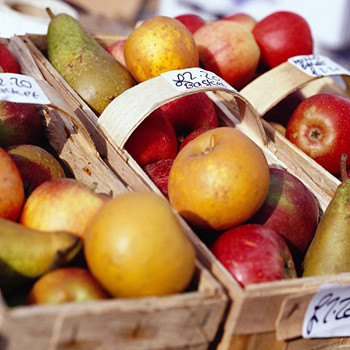 Nutrient contentScientists have failedfind no difference in the amount of minerals and microelements in vegetables and grains grown using standard and organic technologies. The latter involves almost complete rejection of the use of artificial fertilizers and results in fashionable, but very expensive products, for which the population of many countries is ready to overpay. In order to compare the nutritional properties of conventional and organic products, Danish scientists led by Susanne Bügel from the University of Copenhagen grew potatoes, cabbage, carrots, peas and three different technologies over two seasons. The first involved using only manure as fertilizer, the second was also organic but with the use of pesticides, and the third actively used both mineral fertilizers and legally permitted pesticides. The fields with crops were located close to each other in identical weather conditions. Having received the harvest, the scientists compared the amount of minerals and microelements in vegetables and fruits grown using different technologies. No significant difference was found. To make sure that organic products are no better in terms of "digestibility", the scientists fed cattle for two years with feed grown using three different technologies, carefully collecting manure and conducting tissue tests. As it turned out, in terms of digestibility of minerals and microelements, regular food was in no way inferior to organic food. At the same time, the yields from organic plant cultivation methods are usually significantly lower. Because of this and the fashion factor, such food is significantly "on average 35%-50%" more expensive than regular food in Europe. Based on materials from the Daily Mail.
Nutrient contentScientists have failedfind no difference in the amount of minerals and microelements in vegetables and grains grown using standard and organic technologies. The latter involves almost complete rejection of the use of artificial fertilizers and results in fashionable, but very expensive products, for which the population of many countries is ready to overpay. In order to compare the nutritional properties of conventional and organic products, Danish scientists led by Susanne Bügel from the University of Copenhagen grew potatoes, cabbage, carrots, peas and three different technologies over two seasons. The first involved using only manure as fertilizer, the second was also organic but with the use of pesticides, and the third actively used both mineral fertilizers and legally permitted pesticides. The fields with crops were located close to each other in identical weather conditions. Having received the harvest, the scientists compared the amount of minerals and microelements in vegetables and fruits grown using different technologies. No significant difference was found. To make sure that organic products are no better in terms of "digestibility", the scientists fed cattle for two years with feed grown using three different technologies, carefully collecting manure and conducting tissue tests. As it turned out, in terms of digestibility of minerals and microelements, regular food was in no way inferior to organic food. At the same time, the yields from organic plant cultivation methods are usually significantly lower. Because of this and the fashion factor, such food is significantly "on average 35%-50%" more expensive than regular food in Europe. Based on materials from the Daily Mail.

Making Money with Desserts: Success Stories
Evgeniya Polischuk (Fedutinova) instagram:@evgeniyafedutinovavk.com/janeshomebaking– It all started with baking for family and friends. Gradually, I started posting photos of my baked goods on Instagram – and orders started coming in. I made my first custom-made cake on October 13, 2014, and a little earlier I started making macaroons and cupcakes. You could say that the business “found me”, I am very […]

Soups are cold recipes with photos
Cold cucumber soup with yogurt and lemonsorbet from the chef of the restaurant La Taverna Alexander Zhurkin Photo: Getty Images Ingredients: Plain yoghurt – 125 g Cucumber – 150 g Lemon/lime sorbet – 50 g Cocktail shrimp – 24 g Fresh ginger juice – 1 g Lime juice – 5 g Fresh orange juice – 5 g Parsley – 1 g Pink pepper – 1 g Watercress – […]

barbeque kebab
Pork tenderloin in glaze Photo:Dmitry Bayrak/dbstudioPreparation time: 20 minutes + marinating time.Calories: 454 kcal per serving.For 4 servings: 4 pork tenderloins (approximately 300 g each), 1 onion, 2 cloves of garlic, 1 tsp. lemon zest, 1 tsp. lemon juice, a pinch of ground cumin, coriander and turmeric, 1 tbsp. vegetable […]

Pierre Duacan: dietary recipes: Ducane diet
Beetroot soup Photo:Season’S, Luxury Hotels RepresentationYou will need:· Boiled beetroot – 60 g· Fresh cucumbers – 20 g· Red radish – 20 g· Green onions – 10 g· Egg – 1 pc.· Drinking mineral water – 200 g· Salt – 1 gPreparation:· Boil the egg and beetroot.· Grate the cucumbers, radish and part of the beetroot. Put everything […]





